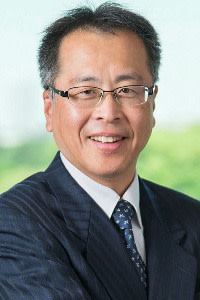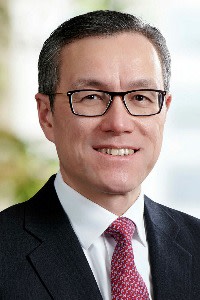Law firm leaders ready for radical change

Roula Khalaf, Editor of the FT, selects her favourite stories in this weekly newsletter.
Ideas such as adopting digital tools or flexible working, which might have seemed radical barely a year ago, are now commonplace. Lawyers’ working lives have been transformed.
The law firm leaders featured here are guiding their organisations in the face of profound transformation in business. That means pressing colleagues to get more out of technology.
But it also involves reimagining what it means to practise law, with more emphasis on new areas such as consulting, digital services and working with policymakers.
Because such change requires resilience, these leaders have also focused on building diverse, agile teams and on employees’ development and wellbeing.
Masaki Hosaka won an FT Innovative Lawyers (Asia-Pacific) 2021 award
Masaki Hosaka, chair, management board, Nishimura & Asahi

After 10 years as managing partner of Tokyo-based Nishimura & Asahi, Masaki Hosaka stepped down in April but continues as chair of the management board.
As managing partner, Hosaka led the firm’s global expansion. Since 2018, it has opened offices in New York, Frankfurt and Düsseldorf.
More than one in six of the firm’s lawyers are now non-Japanese, compared with fewer than one in 14 in 2014.
Hosaka has focused on employee development, overhauling the partnership appraisal process and establishing an office to help staff build their career plans.
He brought in both a chief operations officer and a chief technology officer to drive change.
Milton Cheng, global chair, Baker McKenzie

Elected as global chair in 2019, Milton Cheng is the first to take on the role while based in the Asia-Pacific region. He took on a leadership role in 2014 when he was appointed managing partner of the Hong Kong office. He oversaw the creation of a financial services regulatory practice and a real estate investment trusts practice.
Cheng has set out to redefine what it means to be a global law firm. That includes focusing on highly regulated industries and working with policymakers and regulators to keep pace with fast-changing business needs.
The firm announced a “resilience, recovery and renewal” framework for refining how it works with clients. Cheng also led the launch of Reinvent, an initiative to drive digital transformation at the firm.
Nick Humphrey, managing partner, Hamilton Locke

After almost 25 years in the legal sector, Nick Humphrey set up Australian firm Hamilton Locke in 2018 with the aim of creating an agile, collaborative and less bureaucratic business.
Instead of practice groups, Humphrey put employees into teams centred on markets and clients. Equity is shared by employees and decisions are made by the chief executive and the board. The firm keeps the structure lean by outsourcing back office and IT support.
Humphrey is also the chair of Halo Group, Hamilton Locke’s owner, which offers corporate services across legal, governance, risk and compliance. Last year, he led Halo’s acquisition of two businesses, specialising in outsourcing and trademark registration, respectively.
Teresa Ko, China chair, Freshfields Bruckhaus Deringer

Teresa Ko has advised on nine of the 10 largest initial public offerings in Hong Kong. In 2019, she advised ecommerce business Alibaba on Hong Kong’s first paperless listing, against a background of deepening unrest and pro-democracy protests in the territory.
Ko uses her high profile to lobby for greater gender diversity on Hong-Kong listed company boards. Currently, women hold 13.6 per cent of board positions in the top 50 Hang Seng companies. She also mentors Freshfields’ junior female lawyers.
As a trustee of the International Financial Reporting Standards Foundation, Ko contributed to the publication of its consultation paper last year on sustainability reporting.
Jamie Ng, global head, Ashurst Consulting, Ashurst

Jamie Ng has designed and led new business lines that have expanded the services offered by global law firm Ashurst.
Based in Sydney, Ng spearheaded last year’s launch of Ashurst Consulting. The law firm’s consulting arm advises clients on risk problems such as energy and climate change, the digital economy and infrastructure.
The new business line is on track to contribute 10 per cent of the firm’s global revenue by 2023.
Ng also helped set up an accelerator programme that provides fintech businesses with legal support and introduces them to investors.
Profiles compiled by RSG Consulting researchers and FT editors
Comments